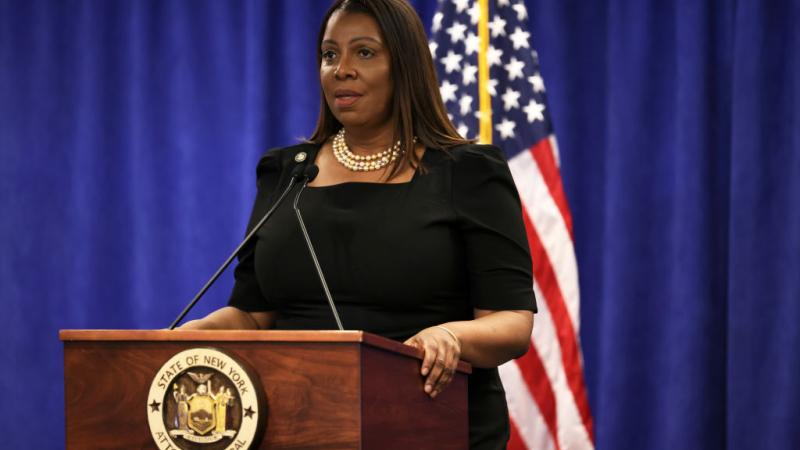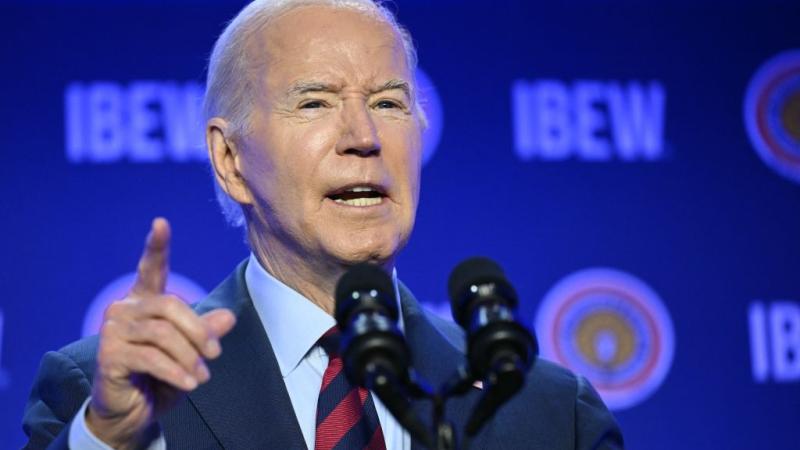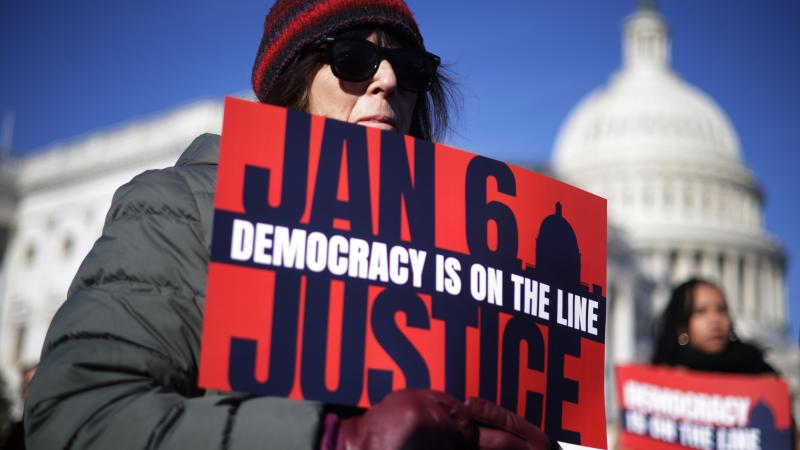Biden's proposed 'gender affirming' treatment mandate undermined by rifts in trans medicine
International group that develops standards backtracked on plans for minimum age for breast removal surgery and gender transition hormones out of fear of malpractice lawsuits, difficulty of getting insurance to cover.
Earlier this year, the Biden administration promised to investigate medical providers and insurers who deny "gender affirming" treatment for minors, from drugs to surgery, when it's "medically appropriate and necessary."
Portraying this "potentially lifesaving care as abuse is dangerous," the Department of Health and Human Services' Office for Civil Rights said, alluding to methodologically suspect research.
OCR opted against a clear definition of "medically appropriate and necessary" in its proposed rulemaking on Section 1557 of the Affordable Care Act this summer, however.
"Necessary" gender-affirming medicine can include services "needed ... to treat an illness" or its symptoms. "Appropriate" includes mammograms for biologically female transgender men.
Asked for more specificity, OCR on Sept. 29 pointed to the footnote Just the News consulted, which simply reviews varying government and private definitions. They appear broad enough to include the threshold for treatment set by Children's Hospital of Philadelphia's gender clinic, whose founder has said it doesn't require the "clinically significant distress" prong of gender dysphoria.
While the proposed rule says a pediatrician wouldn't be punished for denying puberty blockers if "social transition was the clinically indicated next step" following a "nondiscriminatory bona fide treatment decision," it also says providers can't make those decisions by determining that gender-affirming care is never "beneficial," even in youth.
With just days left in the public comment period on the proposed rule, HHS' reliance on the "widespread professional consensus" in favor of pharmaceutical and surgical treatments for gender dysphoria may be complicated by recent rifts in the gender identity health community.
The World Professional Association for Transgender Health, whose "standards of care" (SOC) are invoked in the proposed rule, scrapped its plans to set a new recommended minimum age of 15 for breast removal ("top surgery") and lower the age for hormones from 16 to 14.
The eighth version of the SOC, published Sept. 6 in the International Journal of Transgender Health, ditches age minimums for youth entirely and keeps the seventh version's provision for surgery on a case-by-case basis.
WPATH President Marci Bowers told The New York Times this week it didn't have "consensus" on age minimums, partly because of the "political climate."
The draft revision made available this summer drew unexpected hostility from transgender activists and physicians for its recommended conditions for prescribing drugs to children: They should have "several years" of identifying as the opposite sex and complete an assessment to determine how mental health conditions may affect their gender identity.
Genspect, a newer international alliance that promotes "gender exploratory therapy" over the "aggressive" and "discredited" gender-affirming model, called out the Times report for notable omissions.
Published in 2012, the seventh version of SOC predated the rise of rapid-onset gender dysphoria, a phenomenon largely observed in adolescent girls and their friend groups, Genspect said in a tweet thread. Its advisers include Lisa Littman, who left Brown University after it tried to discredit her research that first identified ROGD.
The group pointed to comments by the lead author of the eighth version's chapter on prepubescent children at a WPATH conference this month. The drafting committee decided against age minimums, and in favor of individual clinician judgment, to account for "legal and insurance contexts," Boston College psychologist Amy Tishelman said.
This reduces the likelihood that "practitioners would be sued" for malpractice by providing treatment to younger patients, she said. "Proscriptive standards can potentially impeach the credibility of clinicians who deviate," a slide behind her reads.
Tishelman also said the committee ensured the recommendations weren't so vague that "insurance wouldn't cover things because they'll say they're not necessary."
The Times report neglected any mention of pullbacks on gender-affirming medicine in Sweden, Finland and the U.K., or the "systematic evidence reviews they've done," Manhattan Institute fellow Leor Sapir wrote in a tweet thread.
The Times, according to Sapir, claims that "'top surgery' in adults ... has been shown to 'relieve body-related distress, increase sexual satisfaction and improve overall quality of life,' and that 'a few small studies of transgender adolescents suggest similar benefits in the short term.'"
But the first of the two studies cited by the Times to back these claims found only that surgery reduces "chest dysphoria," Sapir wrote, while the other study "relied on self-report of symptoms" in 14 participants, "did not control for confounding psychotherapy," and did followup questionnaires within three months of surgery.
"Need it be said that 90 days is hardly enough to gauge the link between double mastectomies on adolescents and 'quality of life'?" Sapir tweeted.
Times reporter Azeen Ghorayshi didn't respond to requests for her response to the criticisms.
The Facts Inside Our Reporter's Notebook
Links
- investigate medical providers and insurers who deny "gender affirming" treatment for minors
- methodologically suspect research
- proposed rulemaking on Section 1557
- public comment period
- International Journal of Transgender Health
- The New York Times
- unexpected hostility from transgender activists
- "discredited" gender-affirming model
- Genspect said in a tweet thread
- comments by the lead author
- likelihood that "practitioners would be sued"
- Leor Sapir wrote in a tweet thread















